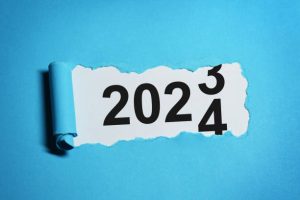AI, An Essential Future Tool in Recruitment and Selection.
It is widely acknowledged that finding and hiring superior talent is a major source of competitive advantage for organisations, hence keeping abreast of the tools involved in the hiring process is, by itself, a source of competitive advantage. If we reflect on changes to hiring over the last 30 years, a revolution has taken place….
It is widely acknowledged that finding and hiring superior talent is a major source of competitive advantage for organisations, hence keeping abreast of the tools involved in the hiring process is, by itself, a source of competitive advantage.
If we reflect on changes to hiring over the last 30 years, a revolution has taken place. For businesses, web based advertising and jobs boards have immeasurably simplified the recruitment process. For job seekers, the process of application for jobs has been made infinitely easier by the change from snail mail to online submission. In addition, the rise of social media has provided new platforms on which candidates can display their profiles for consideration by hiring organisations, who concurrently have experienced diminishing access to talent pools from conventional sources. The outcome has been a vast increase in job applications received by employers but a significant drop off in the percentage of candidates with the desired skills and experience. In addition, the access to so called passive talent (that is those who are not actively looking for a new job but who will consider opportunities if approached) through candidate databases and social media has exponentially increased. In today’s market where demand for skilled talent frequently exceeds demand, the good news is that hiring managers and recruiters now have more tools at their disposal to identify and attract skilled people. The bad news is that the time taken to find, screen, interview, evaluate and attract a vastly expanded number of potential candidates takes greatly increased time to do so. In this changed environment, the massive upsurge of data to analyse and interpret has arguably become the major challenge to achieve more rapid and efficient outcomes, and to reduce the current time taken to hire.
The Advent of AI
Far from being a threat to the recruitment industry, as perceived by some, artificial Intelligence (AI) is emerging as a potential solution to the above challenges. Through machine learning and neural networks, many routine recruitment and selection tasks can now be automated to free up recruiter’s time to undertake more important tasks.
AI programs will be increasingly capable of minimising or eliminating menial tasks such as resume screening, email communication, reminders and interview scheduling. The automation of routine recruitment and selection tasks and the elimination of a large swathes of unqualified candidates will enable recruiters to spend more time on evaluating, interviewing and attracting qualified candidates. There are human characteristics which are essential to the recruitment process (at least for now!) such as empathy and emotions and assessment of cultural fit. A machine is also unlikely to challenge any time soon the requirement for rapport-building and negotiation. It is also hard to imagine as yet, how a computer might contribute to a positive candidate experience beyond improved efficiency of the process and increased communication.
AI is an exciting emerging technology which has the potential to streamline recruitment and selection, increase efficiency of the process and reduce the time to hire. The reduction of recruiter time on menial and repetitive tasks will enable them to develop a more strategic approach to attracting and engaging with superior candidates, thus achieving better hiring outcomes.
The Latest Updates
Let’s look at the current trends in job demand and talent availability in the agriculture and agribusiness sector in Australia over the second half of 2023 and the first quarter of 2024. There was a weakening of job demand in this sector but a slight improvement in candidate availability and job interest during this period….
In times past, people’s working lives often played out over many years at one company, but now the world has vastly changed. These days it is common to shift between jobs and organisations, but this practice raises questions as to what is today considered the Goldilocks time to spend in a job? How often do…
Employee retention matters. Organisational issues such as training time and investment, lost knowledge, mourning, insecure co-workers and a costly candidate search aside; failing to retain a key employee is costly. Various estimates suggest that losing a middle manager costs an organisation up to 100 percent of their salary. The loss of a senior executive is…











